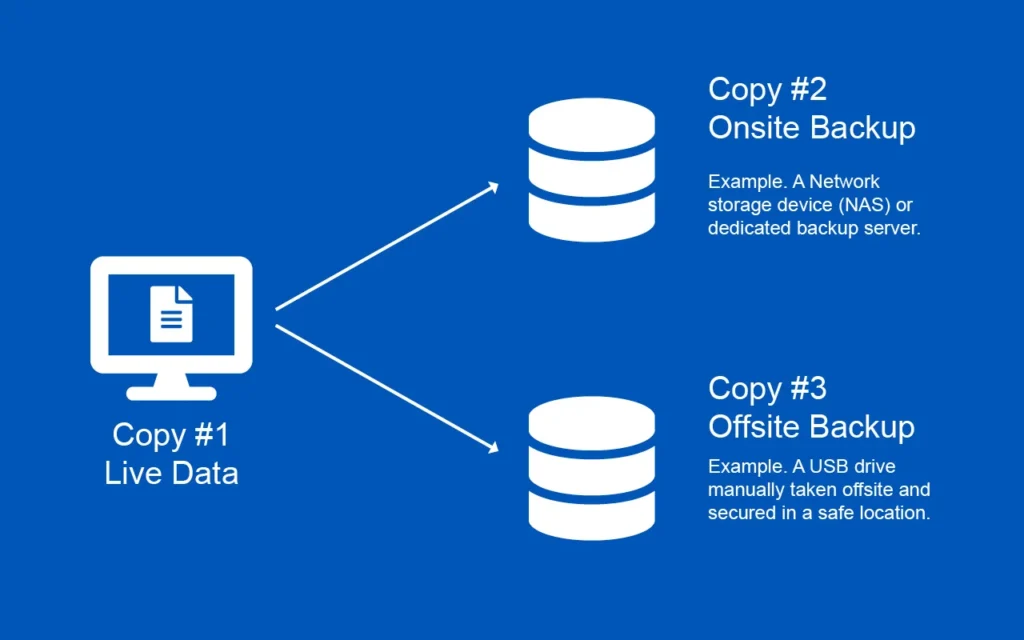The Essential Guide to WordPress Backups: How to Protect Your Site.
Backing up your WordPress site is one of the most important tasks you can do to ensure the long-term security of your content. It may not seem like a priority until something goes wrong, at which point it becomes incredibly urgent, often when it’s too late to recover what was lost.
This guide will walk you through everything you need to know about WordPress backups, making the process as easy and straightforward as possible, so you can avoid unnecessary stress and data loss in the future. https://nadifmark.com
Why Backing Up Your WordPress Site Matters.
In a perfect world, backing up your WordPress site would be unnecessary because nothing would ever go wrong. Unfortunately, we live in the real world where things don’t always go as planned. Several risks can threaten the integrity of your website:
- Human error: You could accidentally delete important files or content.
- Security vulnerabilities: Hackers could infiltrate your site and plant malware or malicious code.
- Hosting failures: Your hosting provider could have an issue that results in data loss.
- Plugin/theme conflicts: A faulty plugin or theme could crash your site or cause unpredictable behavior.
- Update errors: WordPress core updates, plugin updates, or theme updates could introduce bugs that break your site.
- Link: Learn more about preventing human errors in WordPress

Any of these issues could be catastrophic without a recent backup to fall back on. Having regular backups ensures that you can recover from most disasters quickly and easily, turning what could be a major problem into a minor inconvenience.
Should You Rely on Your Host for Backups?
Many web hosting providers offer some form of backup as part of their service, but it’s dangerous to rely solely on these. Hosting backups might not be as frequent or complete as you need, and in some cases, they may not even be accessible when you need them most. Always assume that you need to take care of your own backups.
There are exceptions to this rule, particularly if you are using premium managed WordPress hosting providers like Kinsta, WP Engine, or Flywheel. These services often include robust automatic backups with off-site storage, ensuring that your data is safe even if the host’s servers experience issues. This extra layer of security is one reason these managed WordPress hosting services tend to be more expensive than standard hosting options.

How Often Should You Back Up?
The frequency of your backups depends largely on how often your website changes. The more frequently you add content or receive user interaction, the more often you need to back up your site.
For example:
- Static websites: If your website is mostly static, such as a portfolio or brochure site, monthly backups might be sufficient.
- Blogs with regular posts: If you post new content daily or weekly and receive comments from visitors, you’ll want to back up your site at least daily.
- E-commerce and highly interactive sites: If you run an eCommerce store or other types of websites where users are constantly interacting (such as forums or membership sites), you should consider real-time backups. This ensures that no orders, comments, or user-generated content are lost between backups.
A good rule of thumb is to ask yourself this question: “If I lost the last X days of data, how much would that hurt my website?” The answer to that question will guide how often you should back up your site. For some sites, daily backups are enough, but for others, especially those that depend on up-to-the-minute data (such as eCommerce stores), real-time backups are crucial.

What to Back Up: Files and Database
When you back up your WordPress site, there are two main components you need to back up:
- WordPress files: This includes your theme files, plugin files, and all media (images, videos, documents, etc.) stored in the wp-content/uploads folder.
- Database: This contains all of your site’s content, such as blog posts, pages, comments, and settings. It also includes dynamic content like form submissions, user-generated content, and any custom content saved to your WordPress database.
Both of these components are essential for restoring your site. Depending on the type of website you run, you might need to back up one component more frequently than the other. For example, if you frequently upload new media but only post new content occasionally, you might want to back up your files more often than your database. Most backup plugins allow you to customize what you back up, giving you the flexibility to focus on the most critical parts of your site.
Where to Store Your Backups
Storing your backups in a secure location is as important as the backup itself. Ideally, you should follow the “3-2-1 rule” of backups:
- 3 copies: Always keep three copies of your data—one primary and two backups.
- 2 different media types: Store your backups in at least two different places, such as your local computer and an external hard drive.
- 1 off-site: Keep at least one backup off-site, such as in cloud storage or a secure external server.
This approach ensures that even if your website and hosting server are compromised, your backup remains safe.

The Best WordPress Backup Plugins
Fortunately, WordPress offers several backup plugins that can simplify the process of backing up your site. Here are some of the most popular options:
- UpdraftPlus: One of the most popular free WordPress backup plugins, UpdraftPlus allows you to back up your entire site, including files and the database, and easily restore it with just a few clicks.
- BackupBuddy: A premium plugin that not only backs up your site but also offers real-time backups and the ability to migrate your site to a new server or domain.
- VaultPress: Created by the makers of WordPress, VaultPress provides automated daily backups and real-time syncing of changes to your site.
- BlogVault: Offers real-time backups, malware scanning, and easy site restoration. It’s especially useful for WooCommerce stores.
- Link: Compare the Top WordPress Backup Plugins
Conclusion
Backing up your WordPress site is a crucial task that ensures your site is protected against data loss and other potential disasters. By regularly backing up both your files and database, and by storing backups in secure locations, you can ensure that your site remains safe, even when the unexpected happens.
If you’re looking to safeguard your website, mastering the art of backups is an essential skill. Implementing a regular backup schedule will allow you to focus on growing your website, knowing that you have a safety net in place should something go wrong.
